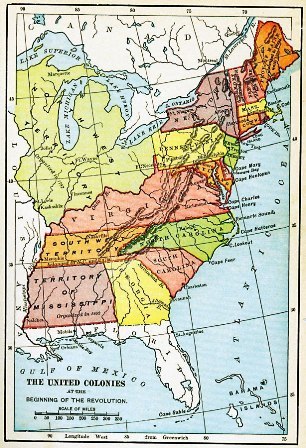Sue Burke's Blog, page 62
April 15, 2015
Go Ahead — Write This Story: What causes problems?
In a story, someone needs to have a problem or conflict. What causes that? Do you blame people or situations?
Conflict can be caused by moral failings, by some people being bad, and the solution is to get rid of the bad people.
Or conflict can arise because people compete for limited resources or try to achieve good outcomes in bad situations. That is, conflicts can be caused by real-world constraints, and the solution requires changing the world or our means to cope with it.
The first cause – bad people – is usually easier to write about, but the second cause – bad situations – is usually more realistic and painful.
If you need a problem for a story, here are a few:
• This is an alternate history story in which William the Conqueror’s invasion of Britain failed three hundred years earlier, and now France and Britain are negotiating to unite against Holy Roman Emperor Frederic III.
• This is a story in which a school decides to eliminate bullying by monitoring every minute of its students’ lives, and how the bullies, as usual the more popular students, try to foil that plan.
• This is a thriller in which aliens land in Russia – satellites and on-site observers have confirmed this and even uploaded videos to YouTube – but the government blocks all further information.
— Sue Burke
Conflict can be caused by moral failings, by some people being bad, and the solution is to get rid of the bad people.
Or conflict can arise because people compete for limited resources or try to achieve good outcomes in bad situations. That is, conflicts can be caused by real-world constraints, and the solution requires changing the world or our means to cope with it.
The first cause – bad people – is usually easier to write about, but the second cause – bad situations – is usually more realistic and painful.
If you need a problem for a story, here are a few:
• This is an alternate history story in which William the Conqueror’s invasion of Britain failed three hundred years earlier, and now France and Britain are negotiating to unite against Holy Roman Emperor Frederic III.
• This is a story in which a school decides to eliminate bullying by monitoring every minute of its students’ lives, and how the bullies, as usual the more popular students, try to foil that plan.
• This is a thriller in which aliens land in Russia – satellites and on-site observers have confirmed this and even uploaded videos to YouTube – but the government blocks all further information.
— Sue Burke
Published on April 15, 2015 07:08
April 8, 2015
If Form 1040 has you feeling frustrated...
Here's a short video, Form 036, about Spanish bureaucratic paperwork demands, only 3 and a half minutes long, with subtitles. It should make you feel better. Or at least vindicated.
https://youtu.be/XXWZ3uAEKsw
— Sue Burke
https://youtu.be/XXWZ3uAEKsw
— Sue Burke
Published on April 08, 2015 03:59
April 1, 2015
When you think about Spain...

What’s the first thing that comes to mind when you think about Spain?
The Elcano Royal Institute, a Spanish think-tank, conducted a poll of people in ten strategically important countries around the world at the start of this year, asking that question. Most people – but not all of them – thought about bulls. (I took that photo at a running of the bulls in San Sebastian de los Reyes.) Or soccer (football). Hardly anyone thought about siestas, although they did years ago. Pretty many thought about the economic crisis.
But not every country thought alike, and that’s where things get interesting.
Most of Spain’s tourism comes from Britain, France, and Germany, so it’s not surprising that the top answer was “sun” for the British at 28.5%, the French at 26%, and the Germans at 21.8%. For them, Spain is a cheap beach vacation destination. Benidorm, for example, is a Mediterranean coast city of skyscraper hotels lining beaches that hosts five million tourists per year and is famous for attracting a certain class of British tourists.
European tourists tend to go to a beach and stay there, although their younger cohorts manage to wander off into bars and then wander out drunk, rowdy, and annoying.
In addition to “sun,” Germans mentioned “economic crisis” at 8.5%, “fiesta” at 7.8%, “beaches” at 6.5%, and specific cities at 5.5%.
The French mentioned “economic crisis” at 10%, specific cities at 5.5%, and “paella” at 5.5%.
The British mentioned “tourism” at 11.8% and “bulls” at 6%.
In the United States, the responses were a little different: “bulls” at 13.5%, specific cities like Madrid or Barcelona at 10.3%, “a wonderful country” at 10%, gastronomy at 9.5%, and culture at 6.8%. While “wonderful country” is pretty generic and may be proof of the famous US failure at geography, “gastronomy” reflects a growing interest in tapas.
That mention of “culture” matters. Relatively few Americans come to Spain as tourists, but the tourism industry treasures them. Unlike the French, Americans go to restaurants and hotels rather than eating out of a cooler in their cars and sleeping at campgrounds. Americans also tend to go to cultural sites rather than beaches, perhaps because the United States has fine beaches of its own but no castles, cathedrals, or Prado Museum. This makes Americans relatively big spenders, and they spend money on the “right” things.
For Mexico and especially Morocco, their top concern reflected their relationship to Spain as a big trading partner. Economic crisis was the top response for Mexicans at 10.2% and Moroccans at 18%.
Soccer scored high in Algeria at 25.2% and Indonesia at 35.5%.
Bulls topped the thoughts of Brazilians at 28.3% and South Koreans at 37%.
Bulls, sunshine, soccer, and an economic crisis. No one asked the same question to Spaniards themselves, but having lived here for 15 years, I know that the economy is a big worry, soccer is a constant, beaches draw crowds in the summer, and bulls are both a minority interest and a national symbol.
“Stereotypes last longer than the reality that gave rise to them,” said the director of the poll. Nobody takes siestas in Spain anymore, and they haven’t for a long time. The rest of the world has finally stopped thinking about that, at least.
— Sue Burke
Also posted at my professional website:
Published on April 01, 2015 03:09
March 25, 2015
Successfully funded!
For those of you who noticed that I was taking part in a crowdfunding campaign, I’m happy to report the campaign ended on March 19 with success.
Castles in Spain / Castillos en el aire, a bilingual Spanish-English anthology of the short stories that helped shape science fiction in Spain, raised $4,147 – 115% of its goal – from 111 funders, to pay for its translation. The book should come out at the end of the year and will bring some new voices to English and to the ongoing discussion in our genre.

To those of you who gave: thank you everyone, gracias a todos! Stories from the language of Cervantes will be read in the language of Shakespeare because of you. And thank you to the other members of the campaign team, Mariano Villarreal and Elías Combarro, who never hesitated to do what needed to be done. And thank you to the people who couldn’t give but who helped spread the word – you really made a difference.
We’re excited and grateful, and we can’t wait to begin to get out the immediate Perks and begin the process of translating, editing, and publishing this landmark anthology.
More information is at the campaign site, http://igg.me/at/CastlesInSpain (By the way, Indiegogo allows us to still accept more funders.)
Again, thank you, gracias. I can’t say that enough.
— Sue Burke
Castles in Spain / Castillos en el aire, a bilingual Spanish-English anthology of the short stories that helped shape science fiction in Spain, raised $4,147 – 115% of its goal – from 111 funders, to pay for its translation. The book should come out at the end of the year and will bring some new voices to English and to the ongoing discussion in our genre.

To those of you who gave: thank you everyone, gracias a todos! Stories from the language of Cervantes will be read in the language of Shakespeare because of you. And thank you to the other members of the campaign team, Mariano Villarreal and Elías Combarro, who never hesitated to do what needed to be done. And thank you to the people who couldn’t give but who helped spread the word – you really made a difference.
We’re excited and grateful, and we can’t wait to begin to get out the immediate Perks and begin the process of translating, editing, and publishing this landmark anthology.
More information is at the campaign site, http://igg.me/at/CastlesInSpain (By the way, Indiegogo allows us to still accept more funders.)
Again, thank you, gracias. I can’t say that enough.
— Sue Burke
Published on March 25, 2015 04:49
March 18, 2015
Go Ahead — Write This Story: Action!
According to Aristotle in Poetics, the characters in a story should be lifelike and should do things, not ponder things. “All human happiness or misery takes the form of action,” Aristotle writes. “Character gives us qualities, but it is in our actions, in what we do, that we are happy or the reverse.” Characters need things to do, a sequence of necessary or probable events that will bring about a change in their situation or character.
If you need an idea for characters and plot, here are a few:
• This is a story in which advanced social media algorithms allow ranking of character – helpful, trollish, petty, intelligent, etc. – and the story tells about a day in the life of an ambitious man who is consumed with achieving the highest positive character ranking possible.
• This is a heart-wrench drama about a woman who sees her afterlife in a near-death out-of-body experience, but in this case she sees Hell rather than Heaven, and although no one believes her or thinks she should change, she knows she must.
• This is a romance – or perhaps an anti-romance – about a pair of actors hired to pretend to fall in love during a deep-space pleasure cruise to entertain the other passengers.
— Sue Burke
If you need an idea for characters and plot, here are a few:
• This is a story in which advanced social media algorithms allow ranking of character – helpful, trollish, petty, intelligent, etc. – and the story tells about a day in the life of an ambitious man who is consumed with achieving the highest positive character ranking possible.
• This is a heart-wrench drama about a woman who sees her afterlife in a near-death out-of-body experience, but in this case she sees Hell rather than Heaven, and although no one believes her or thinks she should change, she knows she must.
• This is a romance – or perhaps an anti-romance – about a pair of actors hired to pretend to fall in love during a deep-space pleasure cruise to entertain the other passengers.
— Sue Burke
Published on March 18, 2015 03:23
March 12, 2015
Who wears the pants? - Women's History Month
Originally posted by
 gillpolack
at Sue Burke - Women's History Month
gillpolack
at Sue Burke - Women's History Month
Who wears the pants?
When I was in grade school in the 1960s in Wisconsin, girls could not wear slacks to school except on days when we had physical education, and then only for half-days. At lunch, we had to go home and change.
We also sometimes wore slacks under our skirts on cold winter days. Pre-global-warming Wisconsin could get plenty cold, and I walked a half-mile to school, but we girls had to take off our slacks when we got there and leave them in our lockers.
Even then, we thought the rule was stupid, one of many rules only for girls. We were unhappy, and we worked to change what we could.
By the time I graduated from high school in 1973, we could wear slacks to class, but that same year, Helen Thomas was ridiculed by President Richard Nixon for wearing them to the Oval Office.
Women staff members were not allowed to wear pants at the White House, and over at Congress, female aides in slacks were sometimes harassed.
Thomas, at that moment, was the chief White House correspondent for United Press International and had traveled with Nixon to China the year before. Eventually she became the first female officer of the National Press Club and first female president of the White House Correspondent’s Association – which she had enlisted the help of President Kennedy to open up to women.
But Nixon was no Kennedy. “Helen, are you still wearing slacks?” Nixon said. “Do you prefer them, really? Every time I see a girl in slacks, it reminds me of China.” He asked her if they cost more than “gowns.” She said no, and he replied: “Then change.” The room erupted with laughter.
Her fellow reporters – males – complained that she had been ridiculed. “It was a cheap way for the President to get a laugh,” one said. Another thought “she was too nice” and should have taken Nixon on.
Thomas responded “The President has not been out on the American scene enough to recognize that pants are not just a trend but a part of the American woman’s wardrobe. I don’t know the President very well, but I do know he is a gentleman of the old school. He views women as he saw them in the ‘30s or ‘40s. Or even ‘50s.”
At that point, I was about to begin university studies for journalism. Helen Thomas hadn’t been my inspiration, but she showed how far I could go. Like her, I might become the only reporter in the White House Press Corps to have a personal assigned seat in the White House Briefing Room. I might be the one to say “Thank you, Mr. President” to signal that the briefing was over, and no one would argue with me about that, not even the President himself.
Eventually, I became a journalist and loved the work. Then I branched out into other kinds of writing and loved that. I also campaigned for women’s rights. I wore slacks whenever I wanted. And I was happy.
Sue Burke now lives in Madrid, Spain, and works as a writer and translator. More information is available at her website,
 gillpolack
at Sue Burke - Women's History Month
gillpolack
at Sue Burke - Women's History MonthWho wears the pants?
When I was in grade school in the 1960s in Wisconsin, girls could not wear slacks to school except on days when we had physical education, and then only for half-days. At lunch, we had to go home and change.
We also sometimes wore slacks under our skirts on cold winter days. Pre-global-warming Wisconsin could get plenty cold, and I walked a half-mile to school, but we girls had to take off our slacks when we got there and leave them in our lockers.
Even then, we thought the rule was stupid, one of many rules only for girls. We were unhappy, and we worked to change what we could.
By the time I graduated from high school in 1973, we could wear slacks to class, but that same year, Helen Thomas was ridiculed by President Richard Nixon for wearing them to the Oval Office.
Women staff members were not allowed to wear pants at the White House, and over at Congress, female aides in slacks were sometimes harassed.
Thomas, at that moment, was the chief White House correspondent for United Press International and had traveled with Nixon to China the year before. Eventually she became the first female officer of the National Press Club and first female president of the White House Correspondent’s Association – which she had enlisted the help of President Kennedy to open up to women.
But Nixon was no Kennedy. “Helen, are you still wearing slacks?” Nixon said. “Do you prefer them, really? Every time I see a girl in slacks, it reminds me of China.” He asked her if they cost more than “gowns.” She said no, and he replied: “Then change.” The room erupted with laughter.
Her fellow reporters – males – complained that she had been ridiculed. “It was a cheap way for the President to get a laugh,” one said. Another thought “she was too nice” and should have taken Nixon on.
Thomas responded “The President has not been out on the American scene enough to recognize that pants are not just a trend but a part of the American woman’s wardrobe. I don’t know the President very well, but I do know he is a gentleman of the old school. He views women as he saw them in the ‘30s or ‘40s. Or even ‘50s.”
At that point, I was about to begin university studies for journalism. Helen Thomas hadn’t been my inspiration, but she showed how far I could go. Like her, I might become the only reporter in the White House Press Corps to have a personal assigned seat in the White House Briefing Room. I might be the one to say “Thank you, Mr. President” to signal that the briefing was over, and no one would argue with me about that, not even the President himself.
Eventually, I became a journalist and loved the work. Then I branched out into other kinds of writing and loved that. I also campaigned for women’s rights. I wore slacks whenever I wanted. And I was happy.
Sue Burke now lives in Madrid, Spain, and works as a writer and translator. More information is available at her website,
Published on March 12, 2015 05:24
March 11, 2015
An important lesson from history for Women's History Month
I’ve begun research for a historical novel about Queen Urraca of Spain (1079-1126). She led an eventful life.
One thing I’ve learned so far: even if you’re an emperor, do not abuse your wife if she’s capable of raising her own sizeable, independent army.
— Sue Burke
One thing I’ve learned so far: even if you’re an emperor, do not abuse your wife if she’s capable of raising her own sizeable, independent army.
— Sue Burke
Published on March 11, 2015 02:13
March 4, 2015
USA: a country with no name
The United States of America has an abiding problem: it has no name.

The “United Colonies” was a precursor to the “United States.” In 1777, the Second Continental Congress adopted the Articles of Confederation, which said: “The Stile of this Confederacy shall be ‘The United States of America.’... Each state retains its sovereignty, freedom and independence....”
That is, each state (“state” meaning an individual political entity with supreme authority) would be its own country like Great Britain or France, and people would refer to themselves as “Virginians” or “Pennsylvanians” or whatever. The United States of America would not be an actual country but rather a coordinated grouping of separate countries located within the huge land mass of America.
Our Founding Fathers had a lot of ideas that didn’t work out, and at least this one was nowhere near as tragic as slavery. The United States of America almost immediately became one single country despite their expectations. Nature abhors a vacuum, so by the time George Washington left the office of President, he was speaking of “[t]he name of American” as our appellation.
Ever since 1507, “America” has meant the entire New World, and there are more countries in America than the USA. This results in snark like this comment to a science post:
Question: Where do Americans live? Answer: Anywhere in North, Central and South America. Residents of Center [sic] and South American also refer to themselves as Americans. What do you call someone who speaks only one language? Someone from the United States.
Haters gonna hate. But what exactly do you call someone from the United States, then? Here in Spain where I live now, sometimes they say estadounidense (United Statesian), which doesn’t trip off the tongue easily, so sometimes they call us norteamericanos (North Americans). Of course, Canada, Mexico, the Caribbean Islands, and Greenland also lie within North America, so norteamericano is no more accurate than plain old “American.”
Besides, Mexico is actually the United States of Mexico, and over history there has been a United States of Brazil (1889-1937), United States of Columbia (1863-1886), and United States of Venezuela (1864-1953), to name just a few. So even using “United States” or “US” to designate ourselves won’t protect us from the most quibbling snark.
We have no real name, and we can only be careful, as the New York Times Manual of Style and Usage says, to be sure that the context makes clear what we mean by “American,” “America,” and “the Americas,” since Argentinians are Americans, too, after all.
And unless someone comes up with a workable alternative – snarkers, be constructive for once – citizens of the United States of America are “Americans” because we have a country with a descriptor, not a name, and that’s the best we can do.
— Sue Burke

The “United Colonies” was a precursor to the “United States.” In 1777, the Second Continental Congress adopted the Articles of Confederation, which said: “The Stile of this Confederacy shall be ‘The United States of America.’... Each state retains its sovereignty, freedom and independence....”
That is, each state (“state” meaning an individual political entity with supreme authority) would be its own country like Great Britain or France, and people would refer to themselves as “Virginians” or “Pennsylvanians” or whatever. The United States of America would not be an actual country but rather a coordinated grouping of separate countries located within the huge land mass of America.
Our Founding Fathers had a lot of ideas that didn’t work out, and at least this one was nowhere near as tragic as slavery. The United States of America almost immediately became one single country despite their expectations. Nature abhors a vacuum, so by the time George Washington left the office of President, he was speaking of “[t]he name of American” as our appellation.
Ever since 1507, “America” has meant the entire New World, and there are more countries in America than the USA. This results in snark like this comment to a science post:
Question: Where do Americans live? Answer: Anywhere in North, Central and South America. Residents of Center [sic] and South American also refer to themselves as Americans. What do you call someone who speaks only one language? Someone from the United States.
Haters gonna hate. But what exactly do you call someone from the United States, then? Here in Spain where I live now, sometimes they say estadounidense (United Statesian), which doesn’t trip off the tongue easily, so sometimes they call us norteamericanos (North Americans). Of course, Canada, Mexico, the Caribbean Islands, and Greenland also lie within North America, so norteamericano is no more accurate than plain old “American.”
Besides, Mexico is actually the United States of Mexico, and over history there has been a United States of Brazil (1889-1937), United States of Columbia (1863-1886), and United States of Venezuela (1864-1953), to name just a few. So even using “United States” or “US” to designate ourselves won’t protect us from the most quibbling snark.
We have no real name, and we can only be careful, as the New York Times Manual of Style and Usage says, to be sure that the context makes clear what we mean by “American,” “America,” and “the Americas,” since Argentinians are Americans, too, after all.
And unless someone comes up with a workable alternative – snarkers, be constructive for once – citizens of the United States of America are “Americans” because we have a country with a descriptor, not a name, and that’s the best we can do.
— Sue Burke
Published on March 04, 2015 06:07
March 3, 2015
Castles in Spain bilingual anthology update
Here’s the latest news on the crowdfunding for the Castles in Spain / Castillos en el aire anthology: The campaign is in its final two weeks, and we’ve found some extra sources of revenue, so the anthology is a go!
Although we’re funded at 65%, we’re really working on stretch goals.
This anthology will bring English-language readers some of Spain’s landmark stories in science fiction and fantasy.
Join us in bridging the language barrier:
http://igg.me/at/CastlesInSpain
Thank you, ¡gracias!
-- Sue Burke
Although we’re funded at 65%, we’re really working on stretch goals.
This anthology will bring English-language readers some of Spain’s landmark stories in science fiction and fantasy.
Join us in bridging the language barrier:
http://igg.me/at/CastlesInSpain
Thank you, ¡gracias!
-- Sue Burke
Published on March 03, 2015 02:33
February 25, 2015
Spurious Correlations
As you can see here, the more the US spends on space, the more Americans hang themselves.

Nicolas Cage does not murder people by pushing them into swimming pools on movie sets, yet they tend to fall in and die more often when he’s onscreen somewhere.

Correlation is not causation, but it can be entertaining.
You can see more lies, damn lies, and statistics – and make your own charts – at Spurious Correlations: http://tylervigen.com/
Have fun.
— Sue Burke

Nicolas Cage does not murder people by pushing them into swimming pools on movie sets, yet they tend to fall in and die more often when he’s onscreen somewhere.

Correlation is not causation, but it can be entertaining.
You can see more lies, damn lies, and statistics – and make your own charts – at Spurious Correlations: http://tylervigen.com/
Have fun.
— Sue Burke
Published on February 25, 2015 06:28



